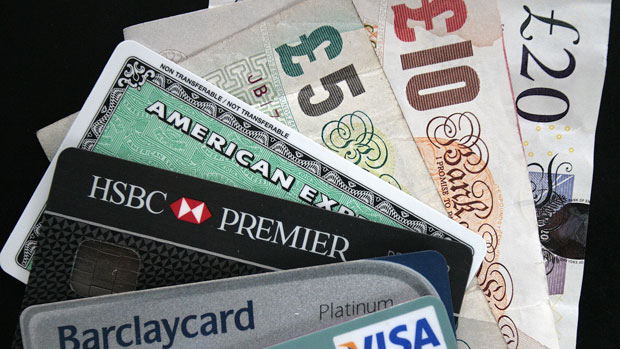Four ways to clear your debts
Credit cards and loans can be a slippery slope to financial ruin - but there are ways to save yourself, says Ruth Jackson

A free daily email with the biggest news stories of the day – and the best features from TheWeek.com
You are now subscribed
Your newsletter sign-up was successful
Stop paying interest
The first step to getting rid of your debts is to stop them growing. Interest charges can rapidly turn manageable borrowing into a monster debt. But, surprisingly, you don’t need to pay for your debt in most instances.
There are loads of credit cards out there that have lengthy interest-free periods. At the moment it is possible to borrow on a credit card and not pay a penny of interest for more than three years.
The Week
Escape your echo chamber. Get the facts behind the news, plus analysis from multiple perspectives.

Sign up for The Week's Free Newsletters
From our morning news briefing to a weekly Good News Newsletter, get the best of The Week delivered directly to your inbox.
From our morning news briefing to a weekly Good News Newsletter, get the best of The Week delivered directly to your inbox.
If you have credit card debts that are accruing interest then apply for a 0 per cent balance transfer credit card and move your existing debts on to it. Then take the amount you owe, divide it by the number of months before interest kicks in on the card and, if you can afford those monthly payments, you’ll be debt-free before you have to pay interest.
If you have a smaller amount of debt that you can pay off more quickly look for a 0 per cent balance transfer with a shorter interest-free period as these tend to have low, or in some cases no, balance transfer fees saving you even more money.
Move overdrafts and loans
If you’ve got personal loans or an overdraft, you can still eliminate the interest with a 0 per cent credit card, you just need a money transfer card. This type allows you to move money from the credit card into your current account so you can pay off the interest-bearing loans or overdraft and effectively move the debt on to the interest-free credit card.
A free daily email with the biggest news stories of the day – and the best features from TheWeek.com
Use your savings
Interest rates are pitiful these days so if you have some debt and some savings you could be better off using the money you’ve saved to clear your debts. Just make sure you leave yourself a big enough savings pot to deal with emergencies so you don’t end up in debt again.
Stop making minimum repayments
If you are making only the minimum repayment on your credit cards you have fallen into a nasty little trap designed by the lenders to keep you in debt. Minimum payments on most credit cards are a percentage of the debt – this means the amount you are repaying shrinks as the debt shrinks so it will take you an age to pay off the debt.
For example, if you owe £3,000 on credit cards and are making minimum repayments that are three per cent of the debt you’ll pay £90 a month off at first, but as the debt shrinks your repayment will shrink too – so it will be just £60 when the debt gets to £2,000.
Set your monthly repayment at a fixed £90 and you’ll clear the debt much quicker.
On a £3,000 debt with a three per cent minimum repayment it would take you 10 years and nine months to pay it off, and that’s without adding interest charges. Make a fixed monthly payment of £90 and you’d clear the debt in just two years and 10 months. That is a whopping eight years sooner.
-
 Sepsis ‘breakthrough’: the world’s first targeted treatment?
Sepsis ‘breakthrough’: the world’s first targeted treatment?The Explainer New drug could reverse effects of sepsis, rather than trying to treat infection with antibiotics
-
 James Van Der Beek obituary: fresh-faced Dawson’s Creek star
James Van Der Beek obituary: fresh-faced Dawson’s Creek starIn The Spotlight Van Der Beek fronted one of the most successful teen dramas of the 90s – but his Dawson fame proved a double-edged sword
-
 Is Andrew’s arrest the end for the monarchy?
Is Andrew’s arrest the end for the monarchy?Today's Big Question The King has distanced the Royal Family from his disgraced brother but a ‘fit of revolutionary disgust’ could still wipe them out